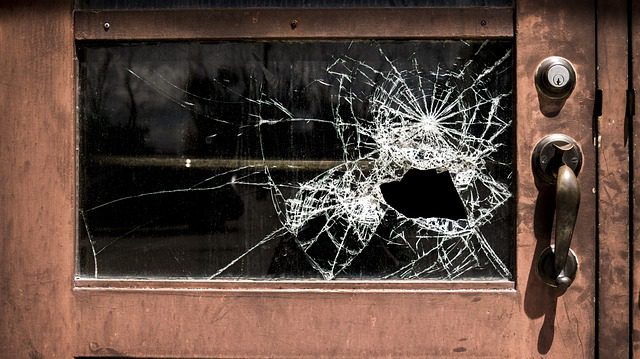
From the combox of the post: A Conversation About Deconversion, And Why People Share Their Stories (Luciano Gonzalez, 7-23-17).
*****
Bravo Sierra:
The question that matters to me with regard to Dave Armstrong is: Why would a person go to such trouble to pick apart a deconversion story if they know that a deconversion story is a personal narrative which is not meant to apply to all followers of Christianity ™ and will convince no one who is not already in your camp?
The answer, I suspect, is to ingratiate oneself with one’s fans. As motives go, it’s selfish and unkind.
I made quite clear what my perspective and motivation was, in the Introduction to two of my critiques (if you saw or read those at all):
Since these are public (else I wouldn’t know about them in the first place), it’s reasonable to assume that they are more than merely subjective / personal matters, that have no bearing on anyone else. No; it is assumed (it seems to me) that these stories are thought to offer rationales of various sorts for others to also become atheists or to be more confirmed in their own atheism. This being the case, since they are public critiques of Christianity (hence, fair game for public criticism), as a Christian (Catholic) apologist, I have a few thoughts in counter-reply.
I am not questioning the sincerity of these persons or the truthfulness of their self-reports, or any anguish that they went through. I accept their words at face value. I’m not arguing that they are terrible, evil people (that’s a child’s game). My sole interest is in showing if and where certain portions of these deconversion stories contain fallacious or non-factual elements: where they fail to make a point against Christianity (what Christian philosopher Alvin Plantinga calls “defeating the defeaters”), or misrepresent (usually unwittingly) Christianity as a whole, or the Bible, etc.
Agree or disagree, that is my motivation. But rather than address that, you choose to second-guess my motives and make unfounded accusations: “The answer, I suspect, is to ingratiate oneself with one’s fans. As motives go, it’s selfish and unkind.”
As to my fans, very few Christians have any interest at all in my critiques of deconversions. This is shown by how few likes and comments these articles get when cross-posted to Facebook. They care very little about it. Thus, that makes no sense as any kind of motive. There is huge interest in the atheist community (as witnessed by this very post and several others), but of course they are not my “fans.” So that is dead-wrong.
As for “unkind”, somehow, all the main atheist figures that I have interacted with have been perfectly gracious, and have not indicated at all that I shouldn’t have done what I did. Jonathan MS Pearce just put up a post saying that he hoped I would continue. He challenged me to interact with his extensive material on the infancy narratives of the Bible, and I agreed to do so.
Dr. Daniel Fincke seemed almost ecstatic that I came around. He called my critique “very genial” and said that it was “serendipitous” that a Catholic apologist showed up at an opportune time; that this caused him to come out of a blogging hiatus. Hardly offense or antipathy or “hurt” there, as to whether I should do it at all . . . Quite the contrary!
Anthony Toohey, whose story I critiqued, has also been very friendly and we are in ongoing discussions.
So if they don’t care and don’t make these accusations, why should you? And why couldn’t you simply make your point without the attack on my motives and character? Luciano didn’t have to do that. He stated that he thought I was “honest” and felt no compulsion to attack me for merely doing some critiques.
***
Jon Morgan:
For me it always felt wrong that the standard of evidence for leaving Christianity would be higher than the standard of evidence for accepting Christianity (in my case, being brought up with it would be the biggest factor). And yet there is a feel that no matter what reasons you give someone will say “You should have investigated this other thing” or “I accept that and I’m still Christian, so you should accept my rationalisation and return to Christianity”.
No deconversion story is going to be complete, and it’s certainly not going to contain the years of doubts and questions and explorations that some (including me) have followed before reaching our current point.
Likewise, nothing we ever say convinces the atheist that we have warrant for our beliefs. Works both ways.
Instead, we are constantly accused (by many but not all atheists) of being gullible, infantile, stupid, anti-science, anti-reason, etc.
If you’re confident in your beliefs, you will welcome challenges to these stories (just as I absolutely love to be challenged), and in fact, so far that has been precisely the response from two of the three that I critiqued. The third hasn’t commented on it.
***
[more from the Facebook cross-posting]
Jon Curry:
Do you think the standard you have for deconversions matches the standard you have for conversions? Every conversion story I’ve heard from someone personally is not rational. In fact they have admitted as much to me. Very depressed or emotional, people turn to faith and find comfort, community, friendships. Later they might become convinced of evidence, but it’s rarely if ever an actual reason for joining.
Yes. I do what I do every day because of the lack of knowledge of the “whys” of Catholicism and Christianity, Ignorance is a scourge in every class of people.
Rejecting something and accepting something are different, however. If someone says that “x is untrue” then they need to offer serious reasons for such a claim. I analyze those, and I have found them wanting in the case of deconversions.
But the basis of the warrant or justification for accepting Christianity is vastly different than the reasoning (real or imagined) used to reject same.
You and other atheists are free to critique our reasons for being Christians. Likewise, we are free to critique yours for splitting.
***
(originally 7-23-17)
Photo credit: paulsbarlow7 (5-19-15) [Pixabay / Pixabay License]
***













